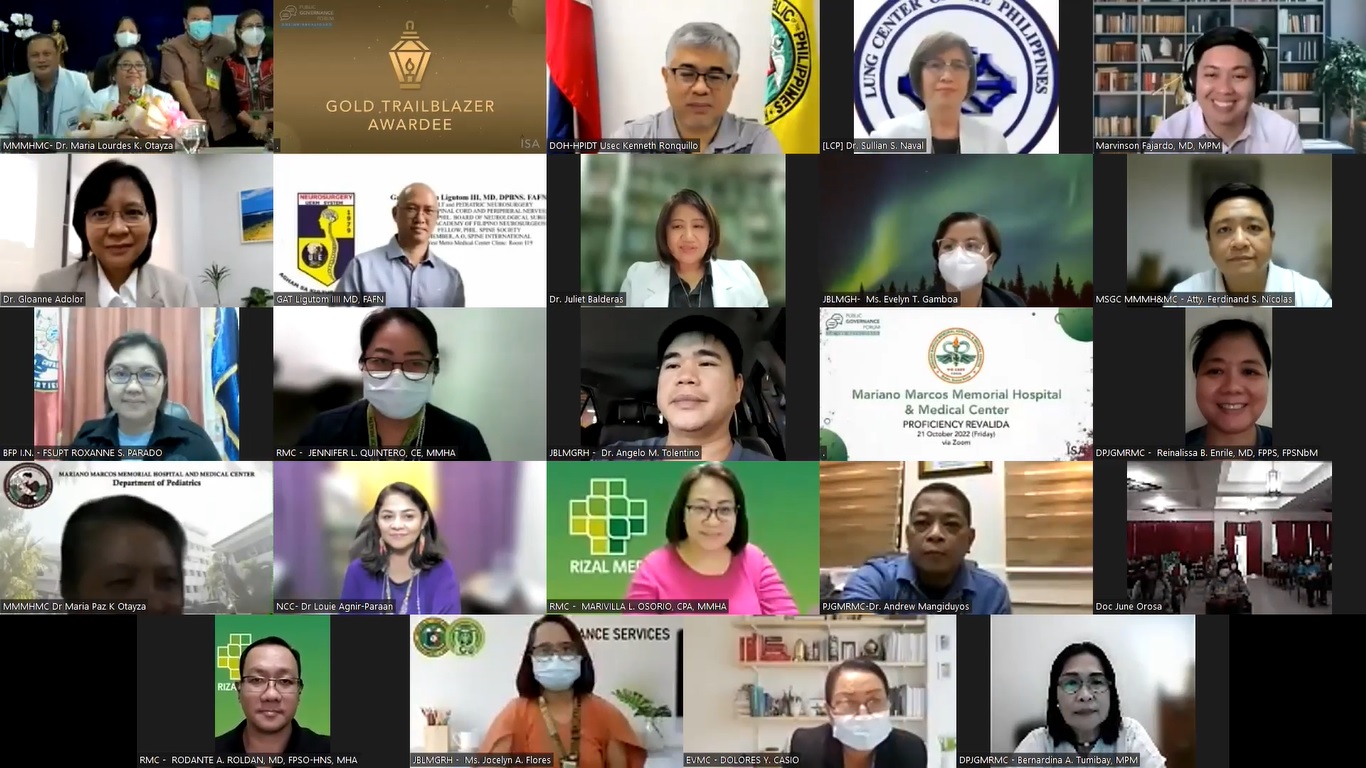Gold, with its radiant hue, signifies various facets of life, from luxury and influence to beauty. Its prominent presence in the midst of the ordinary is undeniable. Yet, for the Ilokanos, gold fondly referred to as “Balitok,” extends beyond its conventional symbolism. It symbolizes a people renowned for their unwavering diligence, industry, loyalty, and resilience.
In the heart of Ilocos Norte, Batac City is home to the Mariano Marcos Memorial Hospital and Medical Center (MMMH&MC). Gilded with several accolades, including the prestigious Gawad Bayaning Kalusugan Award and an honorable mention in the International Hospital Federation’s Seddiqi Holding Excellence Award for Corporate Social Responsibility, MMMH&MC stands as a beacon of excellence in healthcare. Here, the concept of Balitok transcends the ordinary, illustrating an exceptional achievement forged through passion, determination, and resourcefulness.
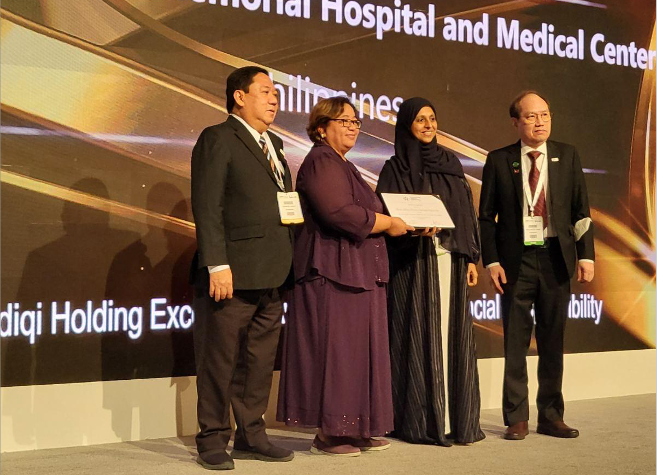
With that said, MMMH&MC maintains an unwavering commitment to the Ilokanos, setting a benchmark for excellence in the healthcare industry across Northwestern Luzon. At the pinnacle of its success, the institution remains dedicated to providing service to its community with its wide array of accolades and recognitions serving as a testament to its work and dedication to providing healthcare to its communities.
From its humble beginnings as a 25-bed emergency hospital in 1968, the institution has grown to become Ilocos Norte’s biggest and most advanced medical institution—a DOH-retained level III, teaching, training, and research hospital, with 400 authorized bed-capacity but implementing on a staggered basis the approved 700-bed capacity, housing a multitude of specialty centers and bustling community of over a thousand healthcare professionals and ancillary support employees. MMMH&MC began its journey along the Performance Governance System (PGS) during the Philippine Heart Center’s PGS Summit and was conferred the PGS Initiated Status in November 2017. After years of effort, strategy formulation, and execution, the medical center was finally conferred the PGS Proficient Status and awarded another Balitok, the coveted Gold Trailblazer Award.
Over the years, the Mariano Marcos Memorial Hospital and Medical Center’s integration into the PGS has catalyzed improvements and growth within the institution. Nearing the last stage of their PGS journey, Medical Center Chief Dr. Maria Lourdes Otayza reflects on this transformation story with happiness and humility.
“I am more humbled because there is so much work to be done. It makes me happy to see that everyone’s concerted efforts are recognized. I am also reassured that our legacy has a better chance of surviving trials with time because we have initiated cultural reform. More people are on the same page now, and it’s so much easier if your colleague can anticipate or imagine the future they want for MMMH&MC,” she said.
Fueling Excellence through Quality Management
As part of MMMH&MC’s strategies and efforts to raise the standard of healthcare in Ilocos, the institution successfully established its Quality Management System, meeting the standards set forth by the International Organization for Standardization (ISO) in 2013. Preceding the PGS framework, the medical center had already laid the foundation for continuous improvement by establishing its Continuous Quality Improvement (CQI) Program. This program, mandated by the Department of Health under Administrative Order No. 2006-0002 and championed by dedicated management, catalyzes a culture of ongoing enhancement throughout the organization. In addition, the institution created the Training and Education Committee under the Quality Management System Office, which spearheaded the conduct of CQI within the organization.
This program follows an intricate 8-step problem-solving methodology, where each team identifies, comprehends, and thoroughly analyzes an issue within their department. Subsequently, they deliberate upon and choose a practical solution, proceeding to its effective implementation. This rigorous process culminates in evaluating outcomes, establishing standardized procedures, and planning for a sustainable and ongoing improvement journey.
When the CQI Studies were implemented hospital-wide, there needed to be more buy-in from members of the organization. Employees exhibited resistance, perceiving this initiative as an additional burden in an already demanding environment, serving one of the busiest hospitals in the northern region.
“Completing a CQI study can be complex and time-consuming because the solution implementation and monitoring takes at least three months before results may be evaluated. However, eventually, CQI has evolved into a culture of quality that the hospital management supports and has been proven to produce valuable results.” Dr. Otayza shared.
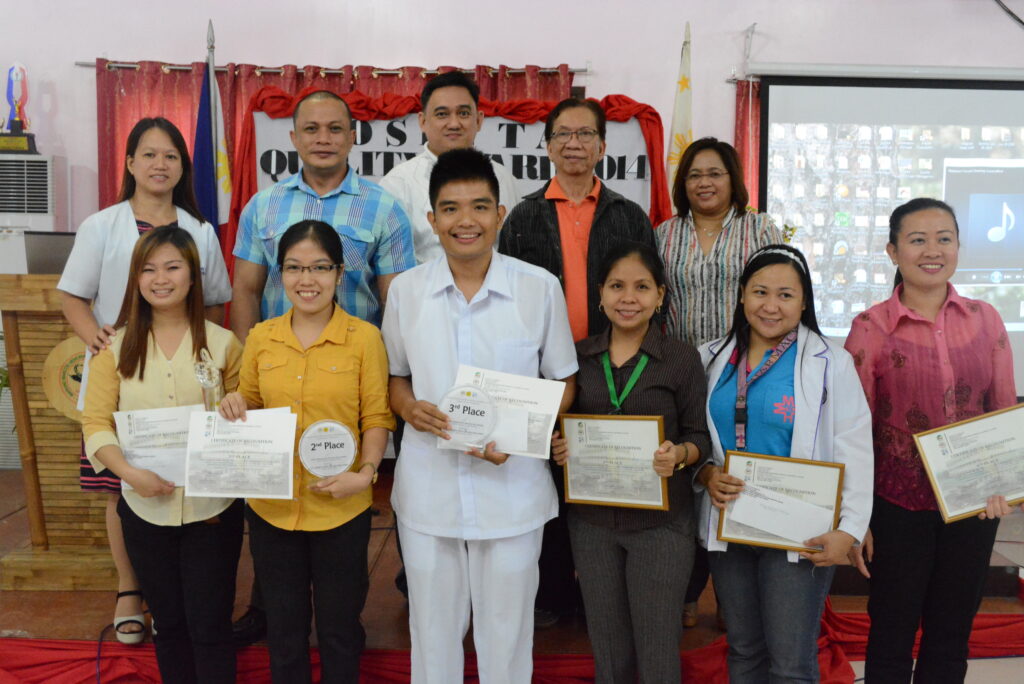
However, since its integration into the PGS, the medical center’s culture of continuous improvement has not only amplified its already outstanding methodologies but also sparked a surge in employee and member involvement. This collective dedication has ignited a powerful commitment to MMMH&MC’s journey of enhancing quality improvement initiatives, making their pursuit of excellence genuinely remarkable.
“The PGS has strengthened the CQI by way of pushing the institution’s best practices to be known locally and internationally, reaping various awards and recognition for the hospital. It boosted the employees’ morale to further participate and do more of [these] continuous quality improvement projects, benefiting not only our clients but the hospital as well,“ she said.
The establishment of CQI studies in the hospital resulted in unceasing improvement of several processes, even earning them several accolades, such as two Silver Awards for the CQI done by the Nutrition and Dietetics Section and the Radiology Department, as well as a Gold Award for the CQI of the Medical Center Chief Secretariat from the Philippine Society of Quality. To acknowledge and celebrate each team’s contributions to these studies, MMMH&MC hosts their annual CQI contest, which showcases the positive influence of these studies on the hospital’s strategic initiatives aimed at delivery service at the highest standard. In August 2021, two hospital CQI studies, “Too Gentle to Handle: End IV Burn among Pediatric Patients” and “Fall for a Cause! End Pediatric Patient Falls,” were presented during the DOH’s First National Hospital Week Research Forum.
Several CQI studies were also sent as entries to prestigious award-giving bodies internationally. For the HealthCare Asia Awards, the institution was awarded with Health Promotion Initiative of the Year for the CQI study, “Welcome to Hear” (Reducing the Percentage of Newborns who are not able to undergo Newborn Hearing Screening Test) and “A Chance to Live Healthier Through G6pd Confirmatory Caravan” in 2019 and 2022, respectively.
Dedication Beyond Measure
Last 2022, the Nursing Division for Special Areas was awarded the hospital-wide Annual CQI Competition champion. This department constitutes the largest population of the medical center with a bustling 452 nursing personnel with plantilla positions, with 414 nurses and 39 midwives catering to the different clinical areas, which include the general wards for Medicine, Surgery, Speciality Departments, Intensive Care Units, Operating Room, Delivery Room, Emergency Room, Out Patient Department and COVID Isolation. The Nursing Division also provides the needs of nursing students from different colleges in the area since the hospital serves as their base and affiliating hospital.
Given the gravity of their scope of work, nurses provide around-the-clock, direct and indirect patient care irrespective of holidays or calamities. Their department coordinates and integrates all factors and stakeholders assigned to provide the best healthcare experience for their patients.
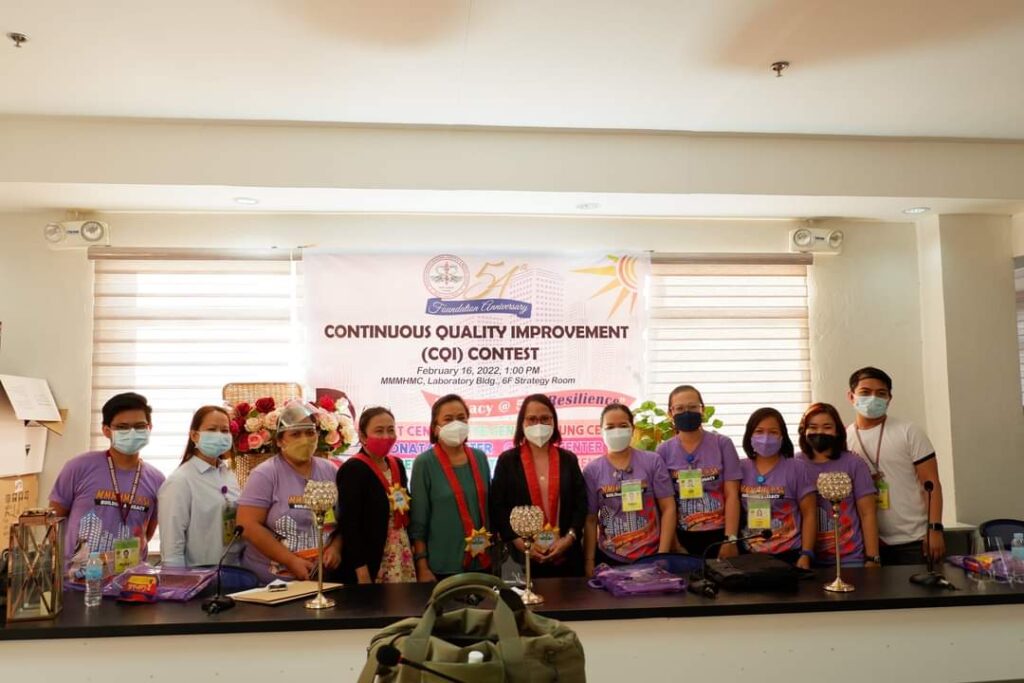
Optimizing Efficiency for a Better MMMH&MC
One of the main challenges public hospitals face is the need for more resources to provide their services. Hence, MMMH&MC has set mechanisms to ensure this would not hinder offering healthcare to the Ilocanos. One of the mechanisms management has put in place is a consignment process, particularly for the Catheterization Lab, to ensure that factors such as the lack of funds for purchasing materials won’t be a roadblock in delivering quality health care service to the stakeholders. However, during this process, the department was faced with many challenges. Ms. Efleda Sarah Marders, Head of the Nursing Division for Special Areas, shared that they decided to make this the focal point of their CQI study.
“The unit encountered difficulties [with] the non-replenishment of consumed goods, which was brought about by the late payments of previously ordered supplies. The root cause of delayed payment to the supplier was due to the incomplete documents needed for its processing. Thus, the unit came up with a CQI study focusing on solving one of the recurring problems, which was entitled high return rate of liquidation documents under consignment,” she said.
Through this CQI study, the institution has made remarkable strides in transforming the accessibility and prompt delivery of nursing care and Catheterization Lab services in the hospital, particularly to its indigent patients. Robust policies have emerged to facilitate referrals for those needing financial assistance, ensuring that elective procedures for non-life-threatening conditions receive the proper funding they deserve. Even amid the challenges posed by the global health crisis, the nursing staff has strived to continuously provide for the hospital’s stakeholders.
“The Nurses were proactive in advocating for the patients’ needs despite the difficulties brought by the COVID-19 pandemic. The diversion of budget had a significant impact on the provision of Cathlab services, allowing the administration to utilize the consignment process to ensure the availability of supplies and generate income without allocating the needed budget. This makes the division resilient during times of difficulty and uncertainty,” Ms. Marders shared.
A Greater Balitok for PH Healthcare
Moving forward from this outstanding achievement, Ms. Marders said on behalf of the Nursing Division for Specialty Areas that to carry their legacy, they expressed their dedication to collaborating with management to institutionalize continuous quality improvement initiatives and activities. This endeavor involves a comprehensive strategy aimed at empowering the staff to master the CQI-making process, fostering a culture of excellence, and significantly enhancing the capabilities of their team members. Moreover, MMMH&MC is in the advanced stages of its PGS journey, with only one remaining step on the PGS Pathway. As a hallmark of the Performance Governance System’s last stage, the medical center hopes to share this best practice with other institutions through benchmarking activities.
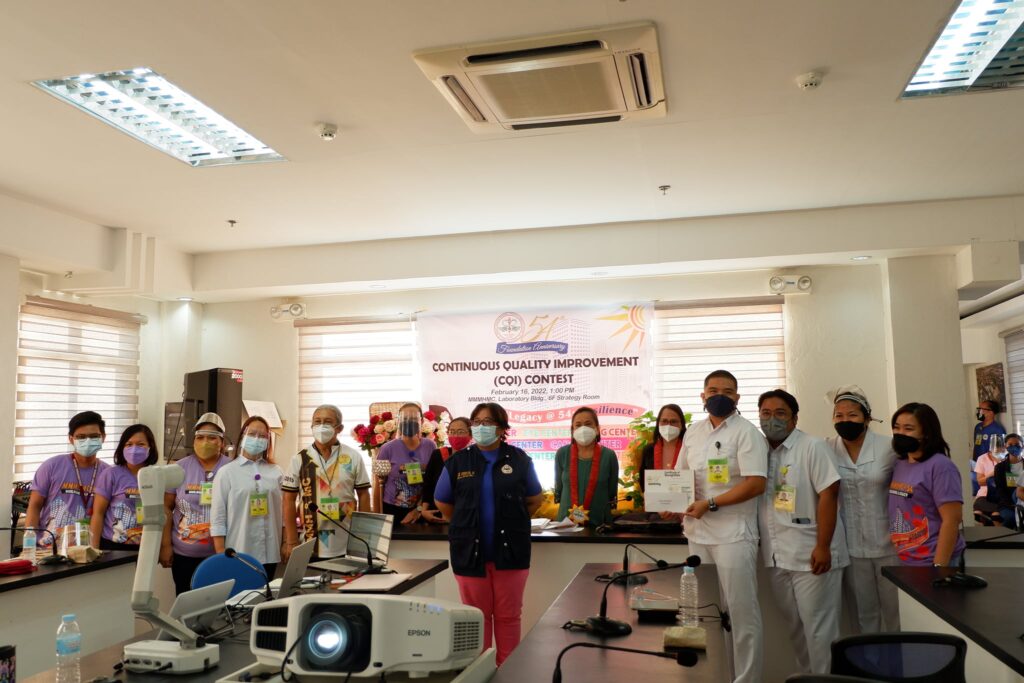
A greater Balitok for the institution, as Ms. Marders said, was the Institutionalization of the CQI process, which would ensure that the healthcare system would be continually enhanced, fulfilling a vision rooted in progress and prosperity for a Dream Philippines where abundance is shared by all, leaving no Filipino behind in the clutches of poverty; where every Filipino family thrives in the embrace of comfort and dignity, embodying a nation that tirelessly strives for the well-being of all, not just a select few.
“[Nurses] are always regarded as the heart of healthcare. With this, we must always keep in mind that giving the best quality service to our patients is our priority. That is why CQI studies are constantly being done so that [the] safety and satisfaction of our patients, clients, and their families will be guaranteed. I therefore encourage you to take part in these efforts of our institution, and we take the path of institutionalizing excellence in governance through PGS,” Ms. Marders shared.
“It was a long journey, and there will still be crossroads and uneven paths that we shall traverse, but with unity and cooperation, we shall reach our set destination.”



